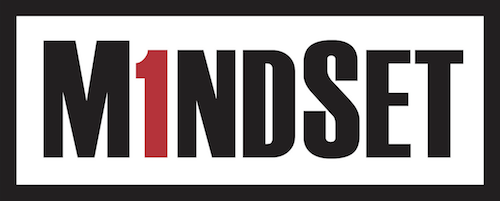If you asked someone on the street, “Show me a great company culture,” many would point to companies like Google and highlight the free beer, hoodies, nap pods, and other lifestyle perks. While certainly buzzworthy, these trendy perks are no more important for creating a phenomenal company culture than the adoption of Causal Fridays in the ‘90s was.
MindSet has now used our Seven Principles of Leadership© and huge leadership training curriculum with over 100 companies across dozens of industries to help them be better at creating and protecting great work cultures. Given this experience, coupled with the data we’ve collected from our MindSet Culture Survey, what are a few core insights on what creates culture that we’d give to a young CEO committed to excellence?
We would start with these four:
1) Adopt this audacious goal: To have every employee report to a phenomenal supervisor. To achieve this goal it requires three key steps: 1) adopt a clear vision for what it means to be a leader in your company (MindSet’s Seven Principles are ideal); 2) put the right people in leadership roles, meaning you avoid the all too common mistake of promoting supervisors on the basis of technical expertise; and 3) invest in high-quality leadership training for your frontline leaders to execute on this vision.
2) Protect the right of good staff to work with good staff. MindSet’s data shows this to be a substantial irritant for otherwise contented employees. Leaders should obviously strive to be as fair as possible, but in those considerations of fairness also consider the competent staff members who are burdened by the employee who has an attitude or performance deficit. If the deficit results from a lack of skill, teach. If it is from a lack of effort, parent sternly. If it is from a lack of ability, stop putting off the inevitable and make the change. Sometimes we do move forward by subtraction.
3) Use participatory decision making. Another strong trend we find in our MindSet Culture Survey data is that younger employees (in their 20s and 30s) want to have input on decisions and be given the rationale for decision’s that are made. While this is fairly easy (or just the natural order of things) in a startup with 5-employees, it will become much more challenging as you grow. The use of a technique we call the “Second Circle” can be helpful. Here you ask yourself a second question before moving into a decision-making meeting. The first obvious question is who you want to have in the room to best help you make the best decision possible. The second question is the one we seldom stop to consider: who would grow by having the opportunity to observe the decision-making process? By adding this second ring of attendees to the meeting, you help employees develop both their analytic ability and a deeper understanding of how their company works.
4) Constantly build pride. Looking again at our data, we find that of the 14 factors we measure, the one that is most predictive of overall cultural health is the degree to which employees feel pride in their company. When pride is low, it should be your first priority as a leader to get it elevated. Employees cannot be proud of something about which they know little to nothing. So you must share history, celebrate significant successes, and even have some great mystique stories that set their company not just apart from others, but well beyond and above! As you grow, these stories need to be kept alive and repeatedly injected into the bloodstream of the company culture and lore.
If you envision a culture that reflects these and other essential elements MindSet advances – and create a PLAN to make them come to life – you are a long way toward lasting cultural success. MindSet believes it is well worth the effort, but it requires a genuine commitment and focused attention from all levels of leadership – and there are no simple shortcuts via the beer tap or nap pod.

Founder of MindSet, LLC.

